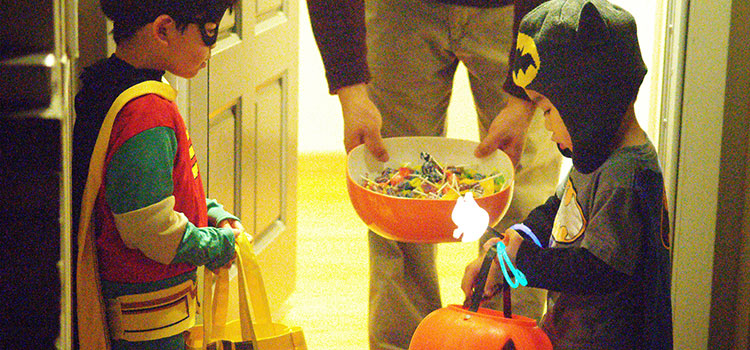It’s happening again.
Earlier this month in Atlantic Beach, Florida, after a 33-year-old man was arrested for possessing marijuana-infused candies, police put out a warning to parents that “marijuana candy could be very appealing to teens and children.” In Texas and Arizona, news outlets have also put out warnings to parents to check their children’s Halloween candy for marijuana edibles.
But media hype around cannabis-infused candies is nothing new. In 2014, after the use of recreational marijuana was legalized in Washington and Colorado, Denver police warned parents to check their children’s Halloween candy for cannabis-infused candy impostors. They even distributed the warning in the form of a highly produced, ominous Youtube video. Over a cinematically-filmed shot of identical, unwrapped Sour Patch Kids gummies, dispensary-owner Patrick Johnson tells viewers, “There’s really no way to tell you whether or not a product is infused or not. Once you take something out of these packages and put it next to something that isn’t infused, it’s very difficult to tell the difference.”
But three days into November last year, and despite the scare tactics, no one had reported any incidents of children accidentally consuming marijuana-infused candy. And following the dire warnings from the Washington Poison Center about the potential danger of pot candy, the Seattle police department later admitted to what Seattle PD spokesman Drew Fowler called “fear-mongering.” It seemed that as long as parents used common sense, then expensive, cannabis-laced edibles wouldn’t end up in the hands of children.
So why the renewed fear of marijuana candy this Halloween? At dispensaries in Oregon, where the sale of recreational cannabis became legal on October 1, the Oregon Health Authority has distributed cards to all marijuana buyers reading, “Marijuana can make kids very sick. You can keep the children in your life safe and healthy by storing all marijuana products in a locked area that children cannot see or reach.”
But the sale of cannabis-infused edibles is banned to recreational users in Oregon until midway through 2016, making the threat of cannabis-infused candy finding its way into kids’ Halloween stashes no more likely this year than it was in 2014. And edibles have been available to medical marijuana patients for years, with no reports of cannabis candies ending up in the hands of children.
It’s not the first time that parents, local police, and the media have portrayed marijuana users as malicious stoners dropping weed candy into the loot bags of unsuspecting trick-or-treaters, and the image will persist as long as our culture’s stigma around cannabis does.
Staying safe on Halloween is simple if parents exercise common sense. Don’t let children eat anything that’s not individually wrapped, and throw away any candy that looks unfamiliar to you. Marijuana candies come in packages specifically advertising their cannabis-infused content, and basic caution will suffice in keeping them out of children’s hands.
There are far greater dangers than pot candy facing children on Halloween night, such as cars and flammable costumes. As Joe Hoden, CMO of Dixie Brands, Inc. writes in an opinion piece for The Cannabist, “The American College of Emergency Physicians says that the types of injuries that send most kids to emergency departments on Halloween have nothing to do with candy.”
Photo Credit: george ruiz
Get daily cannabis business news updates. Subscribe
End



